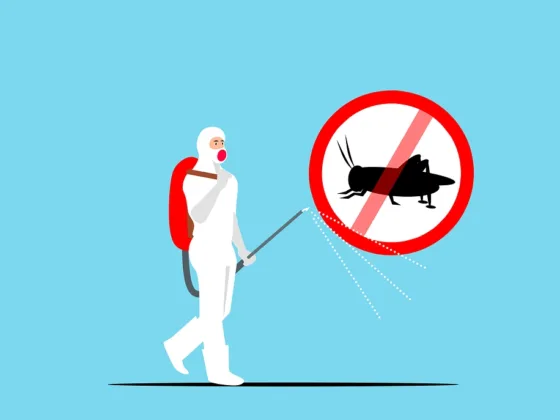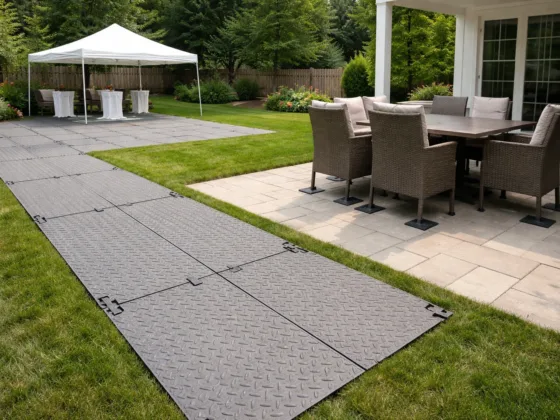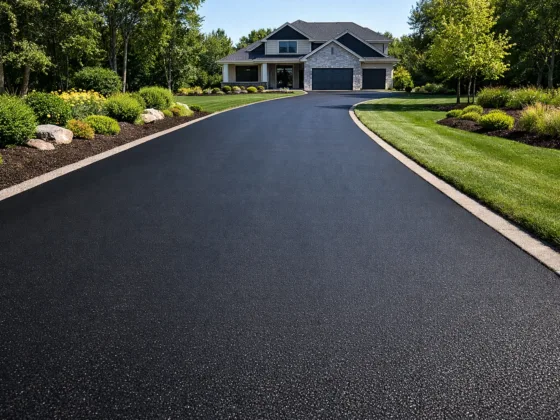Having a green and frequently maintained beautiful lawn is something every American would be proud of.

Landscapers and lawn care companies have developed excellent techniques for maintaining beautiful and lush yards, but how exactly do they do it?
You probably saw that they are spraying something on the lawns they work on, and you are wondering what kind of chemicals they are spraying, are those chemicals toxic and what exactly do they do? If you’re a lawn care specialist you might be wondering what are the best lawn care trucks for your business that will allow you to easily carry the necessary equipment. If you service a lot of customers in a rural area you might even consider buying a custom lawn spraying truck and you’re wondering if that will be a good decision for your business.
In this article, we will explain all of those details and we will give you some tips in case you decide that you want to do it yourself. Fertilization and weed control products are available in most stores and even though we don’t recommend that you handle these things yourself because most homeowners would either use the wrong chemicals or they would use too much of them, which would completely ruin their yard.
Unfortunately, even some so-called lawn care professionals don’t have a clue what they are doing and if you’ve joined some of the common lawn care forums, you probably noticed posts from lawn care specialists asking how to fix the yards they messed up.
If you decide to hire a company to take care of your lawn, make sure to go with professionals that have years of experience and people that sprayed hundreds of yards. But, if you’re a person that likes to work on their own lawn and prefers to handle this part themselves, we can’t stop you.
What Chemicals Do Lawn Care Professionals Use?
Lawn care professionals actually use different chemicals compared to the ones that you can usually buy at regular stores. The main difference between the chemicals used by professionals and chemicals designed for homeowners is in their power and effectiveness.
Unfortunately, a lot of their commercial-grade products just aren’t available to regular people. But maybe this is for the best considering that a lot of homeowners underestimate the power of these chemicals, and they can frequently ruin their yards.
Every lawn is different, and the same chemicals can’t be used for different types of lawns without causing some problems, either for the grass or something else. That’s one of the benefits of hiring a lawn care professional, the fact that you can relax and sit back knowing that the chemicals they are using won’t cause you any nightmares later on.
Read Also:
Using Commercial Lawn Spraying Trucks
Custom-built lawn spraying trucks are built to support professional lawn care businesses by making their job a lot easier. Using lawn spraying trucks isn’t necessary when you’re dealing with small residential yards.
But, if you’re a lawn care company that services rural areas and works with a lot of large lawns, using a lawn spraying truck should make your job a lot easier.
But, buying a custom lawn spraying truck can get really expensive, which unfortunately won’t be a considerable option for a lot of lawn care businesses. In those cases, you can just continue to use your regular lawn care truck to pack your lawn spraying equipment.
Are Lawn Care Chemicals Toxic?
These chemicals are very effective at killing weeds and making your lawn a beautiful green color. But are they harmful?
Any chemicals used to destroy something, even if they are used for pesky weeds must be toxic to some degree. But the bigger question is are they toxic to you, your pets, and the grass? Studies have shown that some of these chemicals do in fact go into our homes and CDC testing showed that the average person carried 13 out of 23 pesticides after testing their blood and urine samples.
A lot of the most used pesticides have been linked to diseases like cancer, kidney or liver damage, and even birth defects. Unfortunately, most of these chemicals still remain toxic even after they become dry. This is because they remain active throughout the whole year.
That’s why mowing the sprayed yard or playing on it is still going to expose you to these toxic vapors. Also, a lot of the used pesticides have been also detected in the groundwater in places where groundwater sources are close to the exposed area.
Alternatives to the Lawn Care Chemicals?
There are definitely safer alternatives to using lawn care chemicals on your property. But the reason why lawn care chemicals are used as much as they are used is that they are extremely effective.
When it comes to choosing healthier fertilizer and mulching, those that don’t contain herbicides or insecticides are generally a lot safer. Also, natural fertilizers are one of the best choices you can use for your organic garden.
If you’re looking to get a perfect green yard, then going completely natural is most likely not going to cut it. The reason why perfect lawns are beautiful and attractive is that they are not common and it’s not something that you can just see in nature.
If you want to get a perfect lawn, then using chemicals is the best way to achieve that. A lot of people decide to go the natural route because it’s safer but then decide to go back to using chemicals once they see that it’s not something that they can get used to.
When it comes to the health side of lawn care, a chemical-free garden is the best garden for your pets, yourself, and your family. But it’s also a lot harder to maintain.
Summary
Ultimately, its customers decide what they decide to use for their yard. We broke down the benefits and downsides of using lawn care chemicals to remove pesky weeds and improve the looks of your lawn.
Using lawn care chemicals is a quick solution but you need to decide if the cost of exposing your pets, your family, and yourself to those chemicals is worth it. Of course, not all lawn spraying solutions are equal, some are more harmful than others.
Before you decide what you want to use, it’s best to consult with a local lawn care professional. Whatever you decide to do, we hope that this article helped you make a better, more informed decision!










